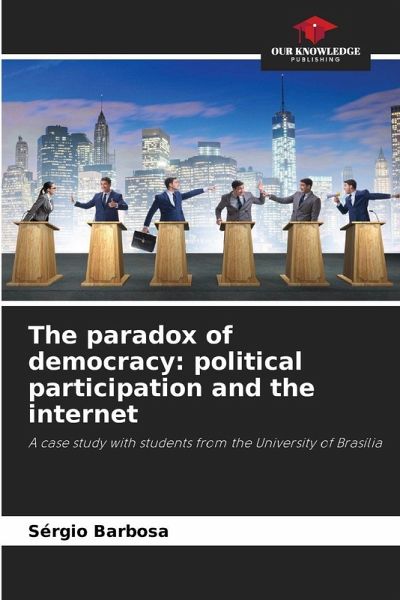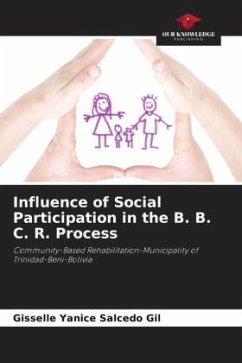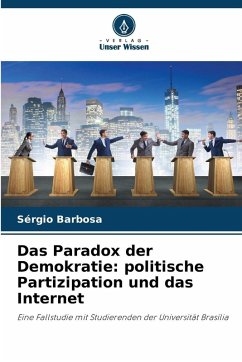
The paradox of democracy: political participation and the internet
A case study with students from the University of Brasília
Versandkostenfrei!
Versandfertig in 6-10 Tagen
24,99 €
inkl. MwSt.

PAYBACK Punkte
12 °P sammeln!
Liberal democracy as a hegemonic political system has been facing a "paradox," namely: there is a lack of trust in political institutions coupled with a preference for the democratic system. This book analyzes how the internet can suggest new opportunities for activism and new forms of participation for society, specifically how students at the University of Brasília (UnB) have used the virtual network to leverage new participatory practices. This study discusses the results of research conducted with UnB students on the intensity and nature of their political participation, with an emphasis ...
Liberal democracy as a hegemonic political system has been facing a "paradox," namely: there is a lack of trust in political institutions coupled with a preference for the democratic system. This book analyzes how the internet can suggest new opportunities for activism and new forms of participation for society, specifically how students at the University of Brasília (UnB) have used the virtual network to leverage new participatory practices. This study discusses the results of research conducted with UnB students on the intensity and nature of their political participation, with an emphasis on interpreting their motivations and perceptions about political thinking and action in Brazil. One of the major findings of this research is to capture new forms of participation, verifying the mobilizing potential of the internet beyond dichotomous approaches that, on the one hand, enthusiastically defend the democratizing potential of the internet as a kind of "digital agora" and, on the other hand, observe its expansion as a trend toward alienation and demobilization.












